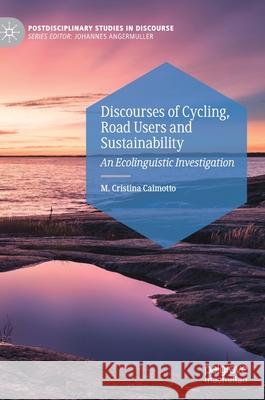Discourses of Cycling, Road Users and Sustainability: An Ecolinguistic Investigation » książka
topmenu
Discourses of Cycling, Road Users and Sustainability: An Ecolinguistic Investigation
ISBN-13: 9783030440251 / Angielski / Twarda / 2020 / 146 str.
Kategorie:
Kategorie BISAC:
Wydawca:
Palgrave MacMillan
Seria wydawnicza:
Język:
Angielski
ISBN-13:
9783030440251
Rok wydania:
2020
Wydanie:
2020
Numer serii:
000793495
Ilość stron:
146
Waga:
0.35 kg
Wymiary:
21.01 x 14.81 x 1.12
Oprawa:
Twarda
Wolumenów:
01
Dodatkowe informacje:
Wydanie ilustrowane











